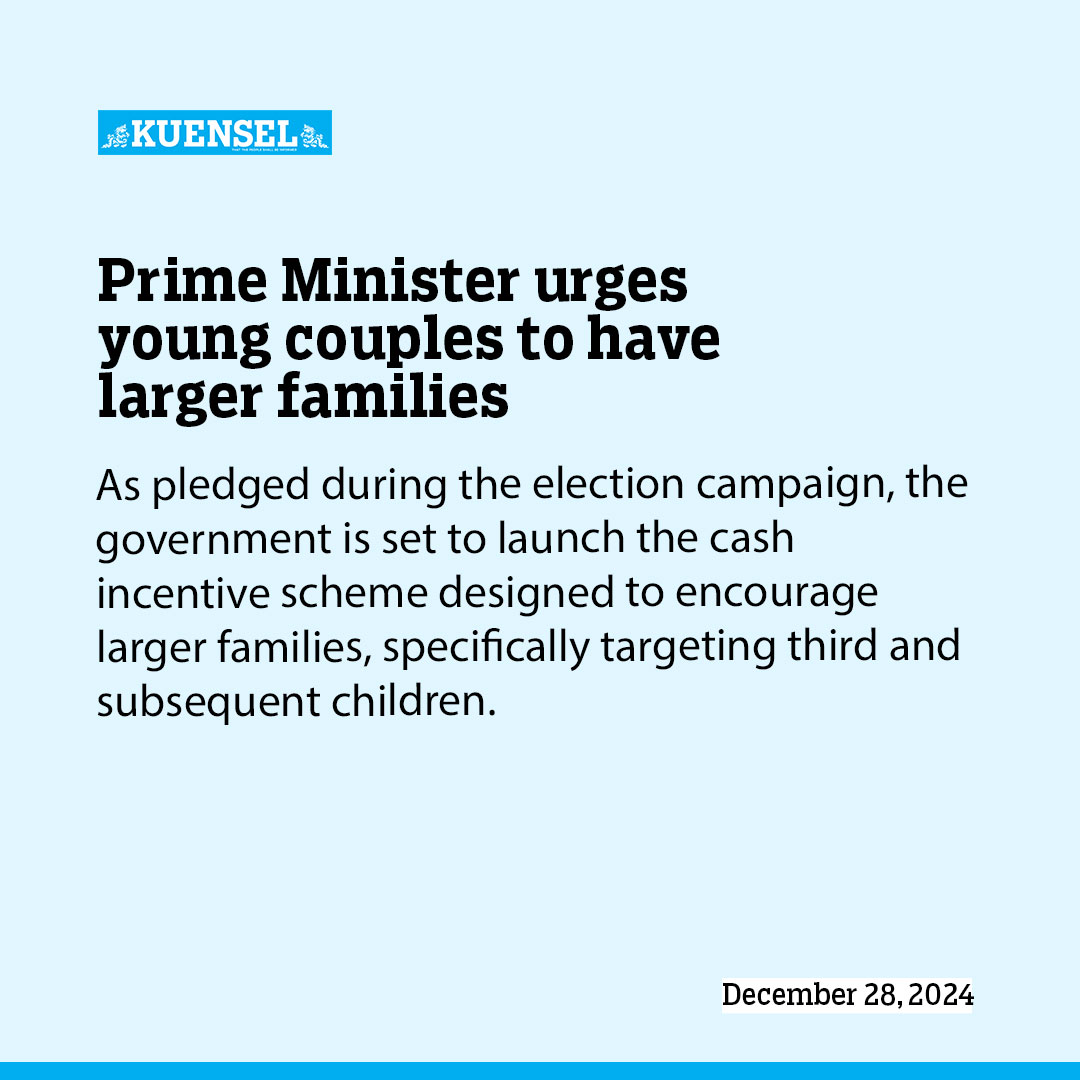Govt looking for funds for third child cash scheme
Jigmi Wangdi
As pledged during the election campaign, the government is set to launch the cash incentive scheme designed to encourage larger families, specifically targeting third and subsequent children.
Prime Minister Tshering Tobgay confirmed that the groundwork for the initiative is well underway during the meet-the-press” session yesterday.
Under this programme, mothers will receive Nu 10,000 per month for each eligible child until they reach the age of three.
“The government is implementing multiple strategies to support parents, especially those in the workforce. Among these, the most impactful measure will be the introduction of the cash incentive programme for mothers with more than two children,” Lyonchhen shared.
The government is engaging with international organisations to seek support for the initiative. “Once we secure the necessary backing, we can roll out the incentive without delay,” Lyonchhen said.
Prime Minister stressed that the country’s declining population is a critical national issue that requires immediate action.
“Population is crucial for Bhutan’s sustainable development, and we need to address this issue before it poses greater challenges,” Lyonchhen said. “No matter how much we progress in other areas, a dwindling population poses serious risks to Bhutan’s future. Expanding families is essential for the nation’s stability.”
Lyonchhen also urged young couples to consider having larger families, emphasising that the incentive should not deter parents from having their first two children. “His Majesty the King’s command to the nation during the recent National Day is something every Bhutanese must take to heart. It is our collective duty to emulate this vision into tangible action.”
Bhutan’s fertility rate, which stood at 6.6 births per woman in 1971, has plummeted to 1.866 in 2023, far below the replacement level of 2.1.
The decline is attributed to various factors, including rising migration, an increasing number of women entering the workforce, delayed marriages, and the financial challenges of raising more children.
In response, the government has pledged to develop a comprehensive ‘Fertility and Family Policy for Bhutan’ aimed at reversing the declining trend.
This policy includes measures such as income support for parents, childcare and education support, assistance for domestic helpers, access to crèche facilities, and flexible working hours for working parents.
As part of this plan, crèche centres will be required in all workplaces, and support will be provided for hiring domestic helpers.
Reliable Early Childhood Care and Development (ECCD) facilities are also being expanded to ease the burden on parents and encourage higher birth rates.
Globally, fertility rates below 2.1 are a common challenge, with many countries grappling with similar issues.
In Bhutan, the contraceptive prevalence rate rose significantly from 18.8 percent in 1994 to 65.6 percent in 2010, further contributing to the decline in birth rates. Migration trends, particularly among young and skilled professionals, have also reduced the productive population.


